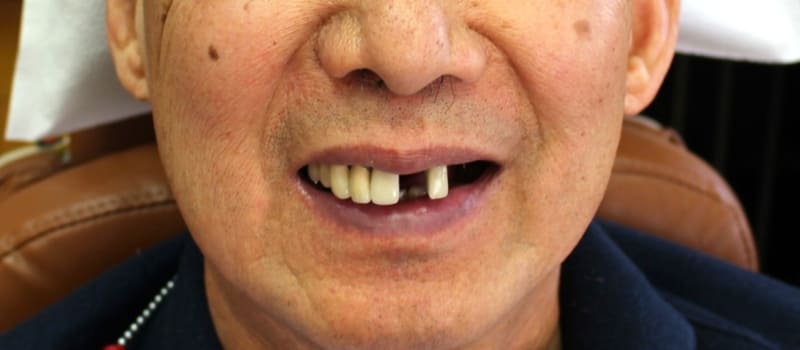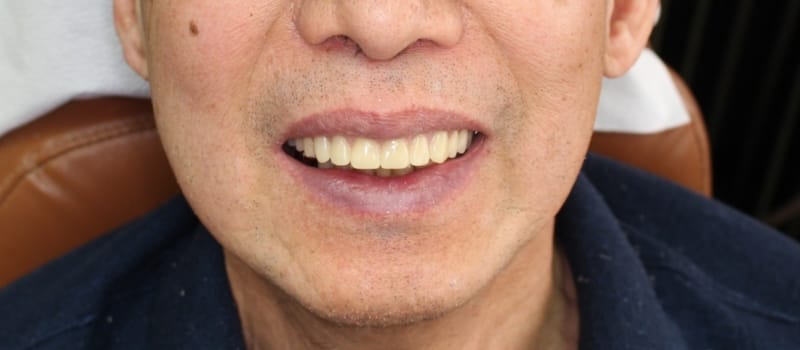For many different reasons we may need to replace our teeth using partial or full dentures. Dentures can be a great solution to allow us to continue enjoying food and our quality of life after losing our teeth. This is a cost effective treatment for replacing teeth, but there are other options to increase comfort and esthetics.
- Complete Dentures
- Also known as full dentures, complete dentures replace all the teeth in either the upper or lower jaw or both. They rest on the gums and are typically made of acrylic resin. Complete dentures are custom-made to fit the unique shape of the patient’s mouth, providing a natural-looking smile and restoring chewing function.
- Partial Dentures
- Partial dentures are used when some natural teeth remain in the upper or lower jaw. They consist of replacement teeth attached to a metal or acrylic base that matches the color of the gums. Partial dentures are held in place by clasps or attachments that connect to the adjacent natural teeth, providing stability and preventing them from shifting.
- Implant-Supported Dentures
- Implant-supported dentures are anchored in the jawbone using dental implants, which are titanium posts surgically placed into the jaw. These dentures offer superior stability and chewing efficiency compared to traditional dentures, as they are securely attached to the implants. They are an excellent option for individuals who want a more permanent and comfortable solution for tooth replacement.
- The lifespan of dentures varies depending on several factors, including the quality of materials, oral hygiene practices, and changes in the jawbone over time. On average, dentures may need to be replaced or relined every 5 to 7 years to ensure proper fit and function.
- Adjusting to speaking with dentures may take some time as the muscles and tissues in the mouth adapt to the new appliance. Some individuals may experience temporary changes in speech, such as lisping or difficulty pronouncing certain words. With practice and patience, most people can overcome these challenges and speak comfortably with dentures.
- Proper denture care is essential for maintaining oral health and prolonging the lifespan of the appliance. Dentures should be removed and cleaned daily using a denture brush and mild soap or denture cleaner. It’s also crucial to brush the gums, tongue, and palate to remove plaque and bacteria.
- While it may take some time to adjust to eating with dentures, most individuals can resume eating a varied diet with some modifications. Initially, it’s recommended to start with soft foods and gradually introduce harder textures as you become accustomed to chewing with dentures. Avoid sticky or hard foods that could damage the dentures or irritate the gums.
- Dentures may feel bulky or uncomfortable initially as the mouth adjusts to the new appliance. However, with proper adjustments and regular dental check-ups, most individuals find dentures to be comfortable and functional.
Before Treatment

After Treatment

Appointment Request
Monday 10 am ~ 2 pm
Tuesday 10 am ~ 7 pm
Wednesday 8 am ~ 5 pm
Thursday 10 am ~ 7 pm
Friday 8 am ~ 3 pm
Appointment Request
Monday 10 am ~ 2 pm
Tuesday 10 am ~ 7 pm
Wednesday 8 am ~ 5 pm
Thursday 10 am ~ 7 pm
Friday 8 am ~ 3 pm

